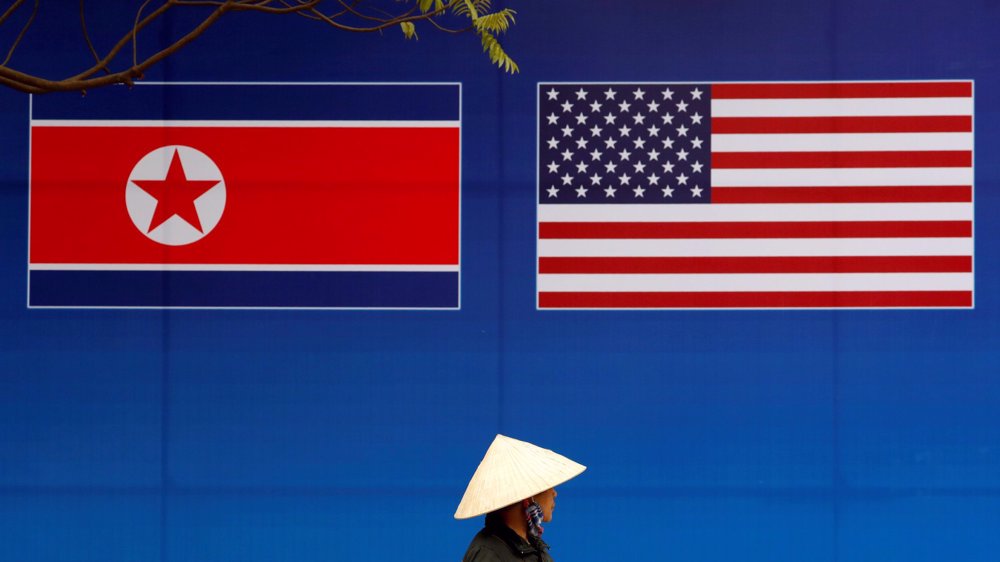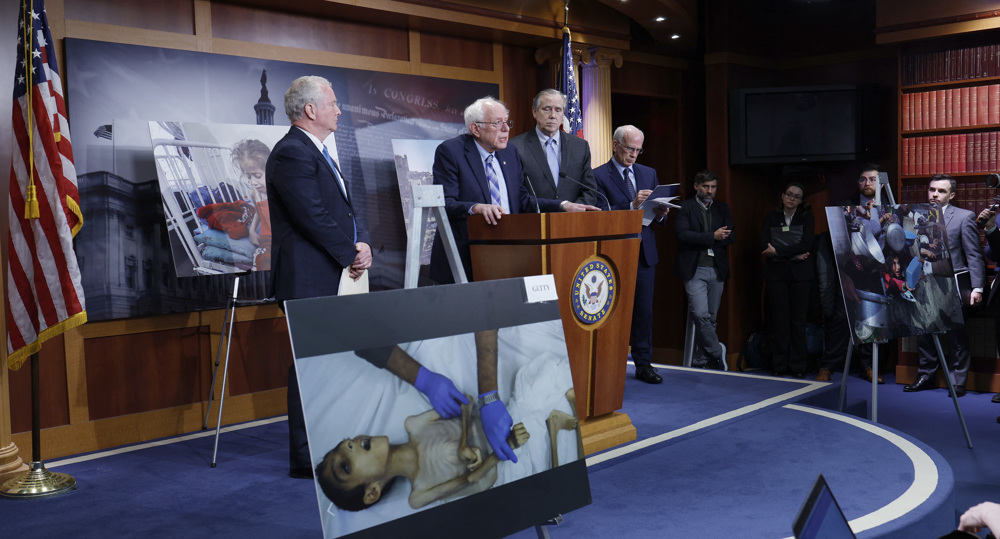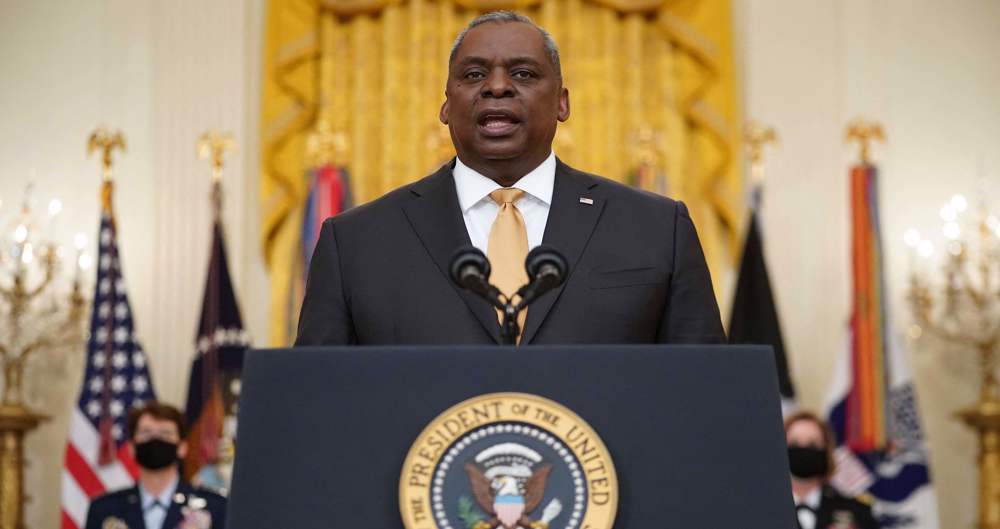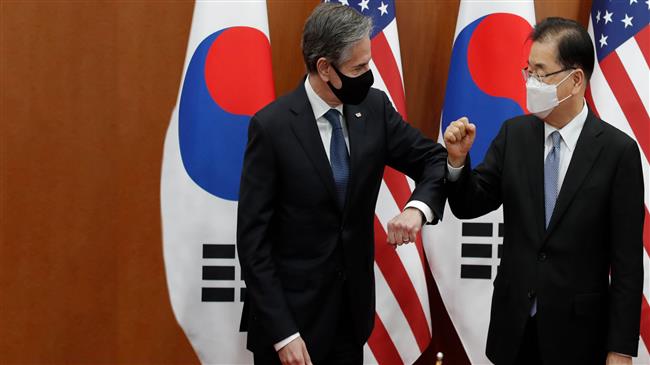Biden ‘doesn’t intend’ to meet North Korea’s Kim Jong-un as tensions simmer
The odds of de-escalation between Washington and Pyongyang have further diminished after the White House said the US President Joe Biden does not intend to meet North Korean leader Kim Jong-un.
Responding to questions of media persons on Monday on the new administration’s policy on North Korea, White House press secretary Jen Psaki said Biden’s approach “would be quite different.”
Asked if Biden’s diplomatic approach to Pyongyang would include “sitting with President Kim Jong-un” something Biden’s predecessor Donald Trump had done, Psaki said, “That is not his intention.”
Tensions between the two sides have escalated after North Korea last week launched a new type of tactical short-range ballistic missile in the wake of annual joint war games between the US and South Korea, which Pyongyang views as rehearsal for an attack.
Washington, in response, called a meeting of the UN Security Council’s (UNSC) sanctions committee, which criticized the test.
The criticism did not go well with North Korea, which slammed the UN Security Council for "double standards" and denying its right to self-defense.
“It constitutes a denial of sovereign state and an apparent double standard that UNSC takes issue, on the basis of the UN ‘resolutions’ - direct products of the US hostile policy,” Jo Chol-su, the North Korean Foreign Ministry’s Director-General for International Organizations, said in a Monday statement carried by the official KCNA news agency.
Pyongyang is banned from testing ballistic missiles under UN resolutions and has been slapped tough international sanctions in the past.
Biden on Thursday said the US remains open to diplomacy with North Korea despite the tests, but warned there would be repercussions if Pyongyang “escalates matters.”
In response, North Korea said the Biden administration had taken a “wrong first step” and revealed “deep-seated hostility” by criticizing what it called a “self-defensive missile test.”
Ri Pyong Chol, secretary of the central committee of the ruling Workers’ Party of Korea, warned that Washington may face “undesirable happenings” if it continues its provocations and “habitual hostility” against Pyongyang.
He said the country’s latest missile tests were in line with its “legitimate right to self-defense,” while criticizing the US’ “gangster-like logic.”
Former US president Donald Trump had three meetings with the North Korean leader, and exchanged a series of letters too, but the overtures did not last too long as Trump refused to remove sanctions in exchange for the North's steps toward demilitarization.
The new US administration has sought to review its policy toward Pyongyang.
US-North Korea ties hit a new low
The US-North Korea ties, which have only worsened in recent years, hit a new low after Pyongyang launched a ballistic missile into the sea off its eastern coast last week, which was confirmed by the US.
The missile launch took place only days after North Korea fired suspected cruise missiles.
Following Thursday’s launches, China and Russia emphasized the need for peace and stability on the Korean Peninsula.
Russian Foreign Minister Sergei Lavrov said, “All related countries need to abandon arms race and escalation of military activities of any form,” while the Chinese foreign ministry spokeswoman Hua Chunying said maintaining peace and stability on the Korean Peninsula was the “goal of all mankind.”
Pyongyang has made rapid progress in its weapons’ capabilities under Kim Jong-un, but has stopped short of testing its longest-range intercontinental ballistic missiles (ICBMs) since 2017.
Meanwhile, on Tuesday, Pyongyang hit out at South Korean President Moon Jae-in as “shameless” after he criticized last week’s missile tests.
North Korean leader’s influential sister dubbed the South Korean leader “a parrot raised by America” for his remarks.
Moon had said in a speech that “actions providing difficulty for the mood for dialogue are undesirable,” and said “people are greatly concerned” by North Korea’s missile launches.
Pyongyang has strongly ruled out resumption of nuclear discussions with the US until Washington drops its “hostile policies.”
“We have already declared our stand that no DPRK-U.S. contact and dialogue of any kind can be possible unless the U.S. rolls back its hostile policy towards the DPRK,” deputy foreign minister, Choe Son Hui, said earlier this month, as quoted by state-run Korean Central News Agency.
Choe said the Biden administration initiated contact in February and has since sent multiple e-mails, phone calls and messages through a third country.
VIDEO | New Delhi chokes under toxic smog as air quality remains at hazardous levels
VIDEO | Press TV's news headlines
VIDEO | ICC's arrest warrant for Netanyahu to worry Western politicians: Former British diplomat
Iranians protest against Israel after Netanyahu ICC warrant
Germany undecided on complying with ICC arrest warrants for Israeli war criminals
VIDEO | Former FBI agent criticizes US Congress for 'outright corruption'
IRGC chief urges Muslim countries to cut aid routes to Israel
'New chapter in cooperation': Iran, Venezuela sign new MoUs















 This makes it easy to access the Press TV website
This makes it easy to access the Press TV website